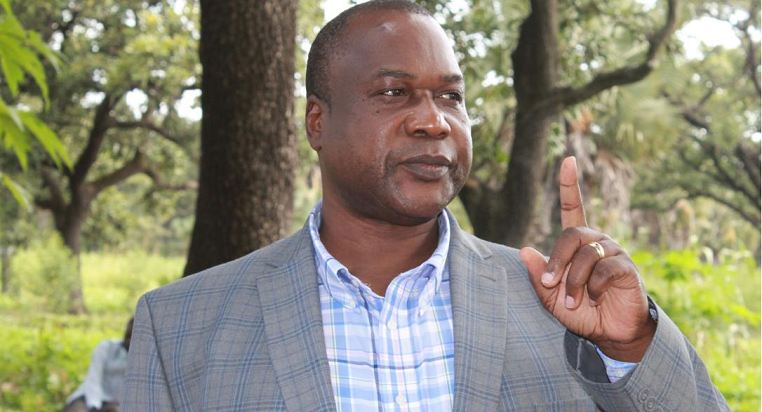President Uganda Cycling Association, Sam Muwonge briefing the contenders during the Bugoma Forest Tour 2021.
Umoja Conservation Trust (UCT) has successfully held the inaugural Albertine Conservation Week that aims to protect the environment in Bunyoro region.
The Albertine Graben is made up of districts including Hoima, Kikuube, Masindi, Buliisa, Kiryandongo, Greater Kibaale and the surrounding areas.
Held under the theme “ensuring natural resources security for sustainable socio-economic transformation of communities in Albertine”, the one-week Albertine Conservation Week brought together managers and chairpersons of various associations of over 29,000 farmers.
It was sponsored by Uganda Insurers Association (UIA), Britam, UAP-Old Mutual and Uganda Reinsurance Company.
A number of activities including sensitizing the public about the dangers of destroying the environment and knowing their rights in light of the ongoing oil exploration in the region were carried out.
The conservationists also paid a courtesy visit to Bugoma forest and engaged in a cycling competition where winners won various prizes. Dubbed ‘Bugoma Forest Tour’, the cycling competition kicked off from Kyangwali Refugee Settlement through Bugoma forest, Kikuube district and ended in Hoima city.
It should be noted that Bugoma Central Forest Reserve has reduced in size from 41,144 hectares to 37,000 as of 2019.
“Everyone knows Bugoma forest but for the wrong reasons. We have decided to use this tour to raise awareness about the need to protect the environment. The Albertine Graben like most of Uganda is largely made up of the poor. We invited those who have good bicycles to participate in this competition,” says Toshi Bryan Bwana, one of the brains behind Umoja Conservation Trust.
Participants were given trees like bamboo to plant.
It is worth noting that over the last two decades, Uganda has lost considerable amount of natural green vegetation and forest cover.
Justice Albert Rugadya, the Chairperson, UCT Board of Trustees, says as water is a key resource, the protection of our natural forest is critical.

“At Umoja Conservation Trust, our mission is to pioneer sustainable, market-led environment conservation efforts in Uganda,” Rugadya says, adding that their approach is to directly work with the stakeholders and partners to support government efforts to create conservation awareness, and active engagement in the implementation of projects and initiatives.
“We believe that through our conservation activities, we will not only have a lasting impact on the environment, but also improve the economic livelihoods of the communities,” he says.
He adds: “Our Trustees and team are driven by their enthusiastic passion for conservation. The team brings together a unique blend of individuals that have a wealth of experience in leadership, business, and public service.”
Gen. Ivan Koreta, one of the members on UCT Advisory Teams says as a patriotic Ugandan, one aspect dear to his heart that he would like to inculcate in all young Ugandans is to protect natural resources (old natural trees and wetlands) and plant fruit trees everyday of their lives.
“Together with Umoja Conservation Trust, we shall be making our gospel to all government entities and more especially the Forces that have a bit of time now considering that the entire Uganda is pacified,” Gen. Koreta says, adding: Environment Conservation if not carefully handled will result into a national security threat.”
Dr. Victoria Sekitoleko, another member on UCT’s Advisory Team says Umoja will play a key role in supporting government efforts of environment conservation.
“With Uganda losing huge chunks of natural forests annually, even agriculture which is our backbone is threatened,” she says, adding: “Just twenty years back, Mabira forest used to have rains all year round. The communities around and within the forest would grow crops all year round but this is no more due to destruction of the environment by human beings.”





